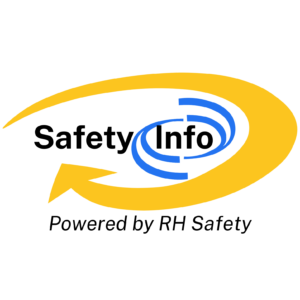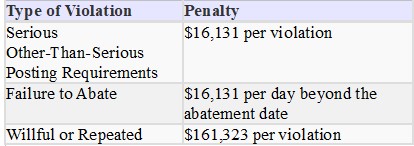
Drug Free Workplace Program
Drug-Free Workplace, helps you develop a customized drug-free workplace policy statement for your organization. Before changing your Drug Free Workplace Program, be sure to check all local/state/federal requirements and union contracts for limitations and implementation. A drug-free workplace policy forms the foundation for a drug-free workplace program; however, it is not the same as a drug-free workplace program. Rather, it is one of five components.
In addition to a policy, a comprehensive drug-free workplace program includes supervisor training, employee education, employee assistance and drug testing. Effective program planning and philosophy are critical to success. Employers and employees should work together to examine each component and design a Drug Free Workplace Program which is balanced, fair program suited to the unique needs and challenges of your specific workplace.
Substance abuse increases absenteeism and turnover.
• An estimated 500 million workdays are lost annually due to alcoholism.
• Employees who use drugs are 2.2 times more likely to request early dismissal or time off, 2.5 times more likely to have absences of eight days or more, and 3 times more likely to be late for work.
• Illicit drug users are more than twice as likely than those who do not use drugs to have changed employers three or more times in the past year.
Substance abuse increases an employer’s medical costs.
• Employees who use drugs cost their employers about twice as much in medical claims as do non-drug-using employees.
Implement a drug-free workplace program.
In 1988, the Drug-free Workplace Act was passed, requiring all federal grantees and some recipients of federal contracts to agree to provide a drug-free workplace as a condition of receiving federal money. In a drug-free workplace, all employees adhere to a program of policies and activities designed to provide a safe Workplace. The policies and activities discourage alcohol and drug abuse and encourage treatment, recovery and the return to work of those employees who have abuse problems. Even if your organization is not required to have a drug-free workplace program, your organization can still benefit.
DRUGS IN THE WORKPLACE
Substance abuse is a widespread problem in our society. An estimated 14.8 million Americans are current illicit drug users.1 The Substance Abuse and Mental Health Services Administration reported that 77 percent of illicit drug users in the United States are employed. That’s 9.4 million people. The chances are good that your organization employs one of these workers.
Who is using drugs at work?
A survey by the federal government showed full-time employees who admitted to being current illicit drug users tend to be:
• between the ages of 18 and 25
• less educated
• male
• divorced or never married
• white
• low paid
Industries with the highest rates of illicit drug use
• food preparation workers
• waiters, waitresses, and bartenders
• other service occupation workers
• construction workers
• workers in transportation and material moving
How does substance abuse impact the workplace?
Employees who abuse alcohol and other drugs bring their problems with them to work.
Substance abuse lowers productivity.
• Problems related to alcohol and drug abuse cost American businesses roughly $81 billion in lost productivity in just one year.
• Studies have shown that substance-abusing employees function at about 67% of their capacity.
Substance abuse causes accidents and injuries.
• Up to 40 percent of industrial fatalities and 47 percent of industrial injuries can be linked to alcohol use and alcoholism.
• Employees who use drugs are 3.6 times more likely to be involved in a workplace accident and 5 times more likely to file a workers’ compensation claim.
A successful drug-free workplace program may include:
• a written policy
• employee education
• supervisor training
• access to assistance
• drug testing
All materials in the members area for this topic index
Program Material | ||
Programs (written) | (1) | |
| Drug Free Workplace Safety Program | Download | |
Program Development | (2) | |
| Drug Free Workplace Program Development | Download | |
| Fleet Driver D A Testrates | Download | |
Fact Sheets | (3) | |
| Drugfree Companypolicy | Download | |
| Drugfree Recognizing Problem | Download | |
| Drugfree Testing Types | Download | |
Forms & Documents | ||
Checklists | (1) | |
| Drug Free Workplace Program Checklist | Download | |
Training Material | ||
Management | (2) | |
| Drug Free Workplace Management Safety Brief | Download | |
| Management Drug Free Workplace | Download | |
Outlines | (1) | |
| Drugfree Programoutlines | Download | |
Awareness | ||
Posters | (3) | |
| Drug Car Poster | Download | |
| Focus On Safety Poster | Download | |
| Marijuana Poster | Download | |

GET INSTANT ACCESS
to THE MEMBERS LIBRARY
Safety materials created by safety professionals.
Access to the Safety Manager software.
Wide variety of safety videos and courses.
**Brand New** Safety Training Management System
Pre-Made Safety Materials Ready For Use
Created by experienced safety professionals & risk consultants. Saving you time, money, and risk of injuries.
95% of the work already done.
Below are the maximum penalty amounts, with the annual adjustment for inflation, that may be assessed after Jan. 15, 2024. (See OSHA Memo, Jan. 8, 2024).

**New OSHA HEAT 90 DAY**
>>Download Free HERE<<
**New 2024 OSHA 300 Form**
>>Download Free HERE<<
**Brand New**
Free with full membership subscription
Training LMS System
Ask The Safety Consultant
Safety Equipment Deal Finder

“SafetyInfo.com is the first go-to website for safety professionals and companies to use in establishing a solid safety program"
-Mike McKenzie, Certified Safety & Health Manager (CSHM), McSafety Solutions™
Note: You must have a full subscription to the Safety Library in order to use this material. Any use outside of your organization, for resell, or without an active membership is strictly prohibited and may result in prosecution under copyright infringement laws. Please contact us first, if you would be interested in reselling or using our materials for reproduction.
Inside the Members Library
Topic Index
Accident Prevention
Air Quality
Asbestos
Bloodborne Pathogens
Boilers
Chemical Safety
Compressed Gas
Confined Space
Construction
Construction Worksite
Cranes & Slings
Driver / Fleet Safety
Drug Free Workplace
Electrical
Emergency Management
Engineering Safety
Environmental
Equipment
Ergonomics
Fall Protection
Fire Safety & Prevention
First Aid
Flammable Materials
Forklifts
Hazard Communication
Hazardous Materials
Hearing Protection
Heat Stress
Hot Work
Housekeeping
Job Safety Analysis
Laboratory
Ladders
Lead
Lockout-Tagout
Machinery & Equipment
Material Handling
MSDS (SDS)
Medical & First Aid
Occupational Health
Office Safety
Off the Job Safety
Personal Protection
Process Safety
Record Keeping
Respiratory Protection
Silica Safety
Rules & Policies
Signs & Labels
Slips, Trips & Fall
Training
Terrorism Programs
Tool Safety
Vehicle & Driver
Violence Programs
Welding & Hot Work
Training Videos
Library Index
Training Materials
Videos/Courses
Talks
Articles
PowerPoint
Handouts
Training Overheads
Quizzes
Supervisor Briefs
Management Briefs
Safety Sessions
2 Minute OSHA Safety Talks
Pamphlets
First Aid Training
Supervisor Training
Hazardous Materials
Bomb Threat
Crossword Puzzles
Biological Agents
Forms & Documents
Forms
Checklists
Audit Guides
Inspections Guides
Signs & Labels
Environmental Audit Guides
Recordkeeping - OSHA 300
Sign & Label Maker
Safety Management Resources
Safety Manuals/Written Programs
Ergonomic Programs
Emergency Plans
Process Safety Management
Construction Safety
Occupational Health
Environmental
Topic Sheets
DOT Fleet-Driver
Hazardous Materials
Chemical Safety
Drug Free Workplace
Terrorism Programs
Development Guides
Safety Manager Software
Safety References & Graphics
Technical Safety Information
Posters
Topic & Fact Sheets
Development Information
Job Specific Safety Rules
Terrorism
Calculators
Safety Comic Strips
New Safety Training System
Schedule and train your employees with our materials. Add unlimited amount of employees. Record all progress and issue certificates. For group and individual training sessions.

